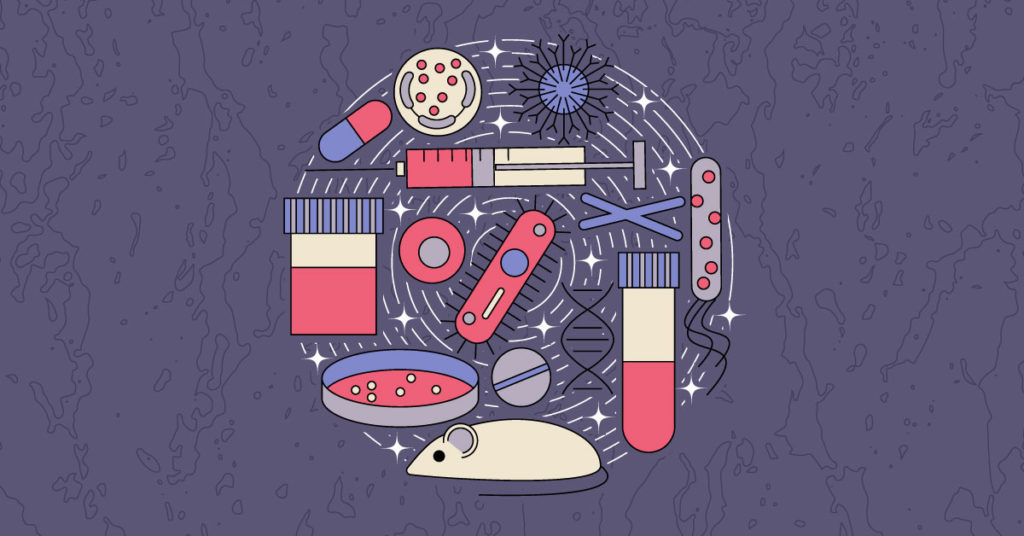
Over the past decade, microbiome research has provided key insights into the relationship between our gut and our health. There are trillions of organisms in our gut, comprising the microbiome that complements our human biology, distinct from our genome. These gut microbes affect us in many ways, from affecting our mental health to our ability to fight cancer.
At the University of Wisconsin-Madison, Federico Rey and his research group are trying to understand how our diet might help or harm the important microbial communities in our gut. “If we can understand how microbes interact with diet, we can personalize nutrition to match diet with the composition of the gut microbiome and promote health,” Rey says.
This research is challenging, due to the complexity of the gut microbiome. It’s difficult to observe specific interactions within a natural microbial community. And there’s still a lot that we don’t know about the genetics of the microbiome. “We can characterize communities in the gut at a taxonomic level, and we can sequence the genomes and tell you what genes are there, but for a large collection of genes we don’t know what they do,” Rey says. To overcome and learn from the challenges of studying the microbiome, Rey’s group uses a germ-free mouse model. These mice can be colonized with specific bacterial species, controlling for experimental variables.
Fecal transplants are one method of introducing microbes into a host, however the microbial communities aren’t defined. Additionally, the method isn’t very scalable. So Rey and his team developed the Fecal Aliquot Straw Technique (FAST) to collect samples, store them, and extract and process DNA for sequencing. The FAST method can be used to define the microbial composition of a sample, which can be reproduced and repeated for multiple experiments.

Equipped with their germ-free mice and fecal samples, the Rey laboratory has been investigating the relationship between the microbiome and atherosclerosis. In a 2018 study published in Nature Microbiology, they found that Roseburia intestinalis interacts with plant polysaccharides (dietary fiber) in the mouse diet to reduce atherosclerosis. This is because R. intestinalis creates a byproduct or metabolite called butyrate which has anti-inflammatory properties. Germ-free mice colonized with the core community of microbes plus R. intesetinalis were less likely to develop atherosclerotic plaques than mice with only the core set of microbes. Given this relationship, Rey questions what kinds of dietary supplementation might improve or modify microbiota and improve health outcomes?
That question introduces more complexity, since host genetics also affect health. So modifying the microbial population to influence outcomes isn’t that easy. Rey’s team is using Quantitative Trait Locus (QTL) mapping to better identify genetic regions that are associated with bacterial species and specific traits. Essentially, the genetic variability from person-to-person might influence the composition of their microbiome. “This will help us understand why certain people have different microbiota, but also what are our limits for how we can manipulate the microbiota,” Rey says.
Environmental factors affect our microbial communities, too. In a 2019 study published in Scientific Reports, Rey and his collaborators observed that social interactions and who you live with can influence the gut microbiota. Past research suggested that genetics influence microbial communities, but this research showed that siblings were less similar when it came to the microbiome and close relationships were more influential. “The closer your relationship with your spouse, the closer your microbiomes look,” Rey says.
There is a lot yet to discover about the microbiome. Rey’s work sets the foundation for future human studies, and balances the complex system of the microbiome with host genetics and dietary choices that all play a role in long-term health outcomes.
Related Posts
Latest posts by Mariel Mohns (see all)
- Sustainability Makeover: Parking Ramp Edition - January 27, 2020
- Go with Your Gut: Understanding How the Microbiome and Diet Influence Health - November 26, 2019
- Kyle Hill Explains the Science of Star Wars at the Wisconsin Science Festival - October 23, 2019
